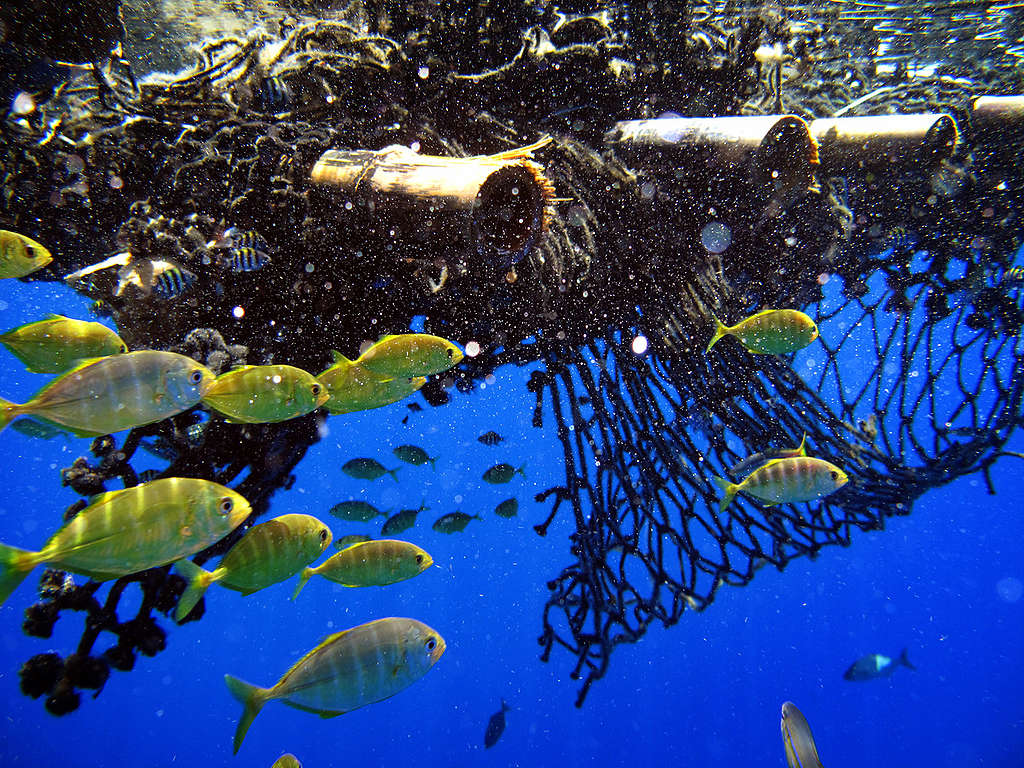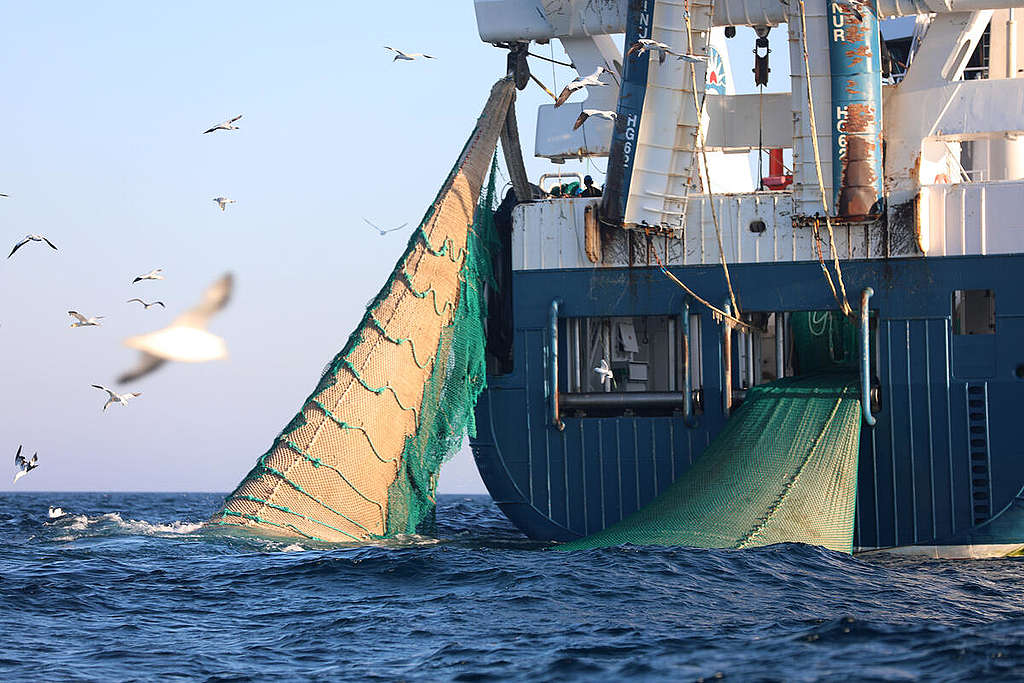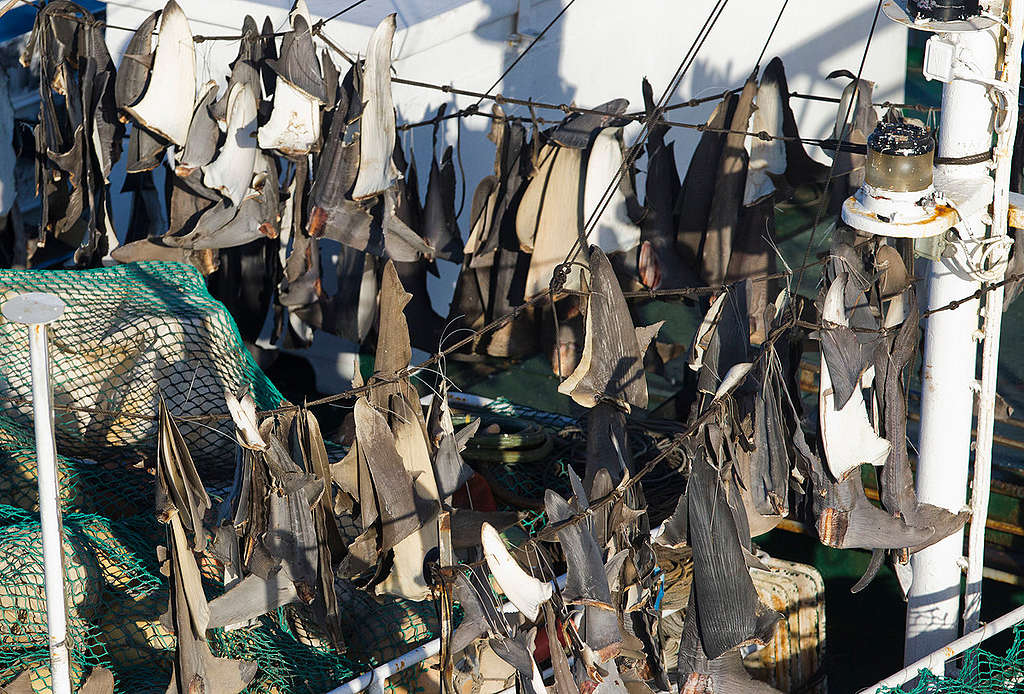Louisa Casson
Industrial fishing is emptying our seas of life – ripping up seabeds, decimating wildlife populations and threatening food security for local communities.
So why are governments still hoping that they can solve the ocean crisis in discussions dominated by destructive fishing interests?
Just 1% of the global oceans are properly protected from harmful industry, while 93% of fish populations are either overfished or on the brink of it. That means fish aren’t able to reproduce fast enough to make up for how much industry is taking out of the oceans – there are no longer ‘plenty more fish in the sea’.

Business as usual has failed our oceans. Right now, the health of our oceans is in the hands of a network of organisations that all have different interests – industrial fishing, mining or shipping. What these siloed organisations have in common is that they all focus on how to exploit the oceans – not to protect them. No one is taking the big picture view of what our oceans need.
One of these organisations, the Indian Ocean Tuna Commission, met this week. Around a third of the global catch of yellowfin tuna happens in the Indian Ocean – and since 2015 has been officially classified as overfished. The harmful impact of overfishing out in the global oceans falls hardest on low impact fishing communities in island nations like Mauritius and the Seychelles. Their sustainable small fishing boats are left with empty nets as massive factory ships grab ever more fish from further out at sea.
Five years ago, governments agreed on a recovery plan for yellowfin tuna – but data suggests that industrial fishing has actually increased since governments put this plan in place. Indian Ocean yellowfin tuna so far shows no signs of recovery. Scientists are warning that if this broken approach continues, the yellowfin tuna population could collapse by 2024.

After failing to do anything about this last year, government delegations logged on to Zoom this week to agree what to do next.
The problem is pretty clear: they failed to agree on anything. The European Union and the influence of industrial fishing companies from France and Spain blocked agreement on conservation measures in order to protect their profits at the expense of our oceans and the people and wildlife that rely on them. In effect, governments have given destructive fishing companies the green light to carry on exploiting people and marine life in the Indian Ocean.
And it’s not just yellowfin tuna that are threatened by this reckless approach: this failure to limit destructive fishing also means that populations of vulnerable species like sharks are plummeting in the region, while the fishing industry continues to wreak havoc on the wider ocean ecosystem.
This week’s latest failure is yet another sign that we can’t rely on the status quo to deliver transformational change. Creating change means taking action.

We need your help to tell governments that something’s got to change. Big time.
A new Global Ocean Treaty would enable governments to create ocean sanctuaries across the global oceans to give sea creatures the chance to recover, free from the pressures of mining, pollution and destructive fishing. Governments are negotiating this new treaty at the United Nations this year – but the fisheries industry and governments close to it continue to lobby for a weak treaty that would be toothless to stop the plunder of the oceans.
We need to be louder than them, and stop politicians getting away
with allowing ocean destruction to continue. A strong Global Ocean
Treaty would help better protect places like the Indian Ocean, giving
coastal communities and marine life a chance against destructive
fisheries and other ocean threats. Join the millions of people who are calling for a Global Ocean Treaty.

No comments:
Post a Comment
Note: Only a member of this blog may post a comment.